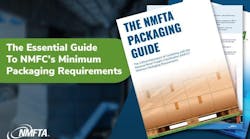I started my career in the carbon paper age. You stuck it shiny side down between two pieces of paper, rolled in into you're typewriter and tried not to make any mistakes.
Within a decade, there was a computer terminal on every desk in the office. Even the crustiest, most senior reporters on the newspaper where I worked were happily plugging away in front of their green screens within a week. And it never crossed my mind that there wasn't a single sheet of carbon paper left in the whole building. Sometimes the world changes so quickly and completely that we're too busy dealing with the change to notice what's really happened.
Now the disappearance of carbon paper in itself isn't such a big deal, but the electronic files that made it obsolete have reshaped the modern world. Copy, paste and click proved to be three powerful agents of change.
I was just reading an article in The Atlantic about the growth of manufacturing in China. The author, James Fallows, quoted one source who made the observation that in today's world, “The supply chain is intellectual property.” And as I read that, I thought of carbon paper.
Trucking as a business and a service has changed radically in recent years without much fanfare or even notice. Yes, trucks with familiar looking engines and wheels are still carrying the freight, just as my computer uses the same alphabet as my old IBM Selectric. But how those trucks function as a lynchpin in an intricately interwoven transportation system is quite different.
If you move freight, either as a for-hire or private carrier, think about your interaction these days with the people generating that freight. For the most part, it's a process that's completely driven by data transmitted electronically. When was the last time you talked to a regular customer on the phone about a routine load?
How trucking moves the goods is now a matter of long-range planning that changes rapidly in response to carefully monitored metrics. Trucks are a key element in a supremely flexible, yet highly efficient system that runs off data as much as diesel.
Fleet managers can at will call up a real-time calculation of utilization by fleet, by region, by customer, by vehicle or by any other yardstick they feel is important. They can measure and monitor their performance without time delay to head off service disruptions without incurring unacceptable costs.
And fleet customers take that for granted, seeing access to that kind of data-based freight service as essential to their business success. We find ourselves living in a world where global transit times from factories to consumers are measured in hours and delivery windows in minutes, yet the cost for that service — which was unimaginable at any cost not so long ago — is lower than ever.
So the supply chain — the movement of goods from raw material to end user — has become intellectual property that differentiates businesses that succeed from those that become history. It is the intellectual property that's brought us a true global economy.
Whether you welcome or fear it, trucking is an essential part of that change. Even if you still haven't noticed.
E-mail: [email protected]
Web site: fleetowner.com


